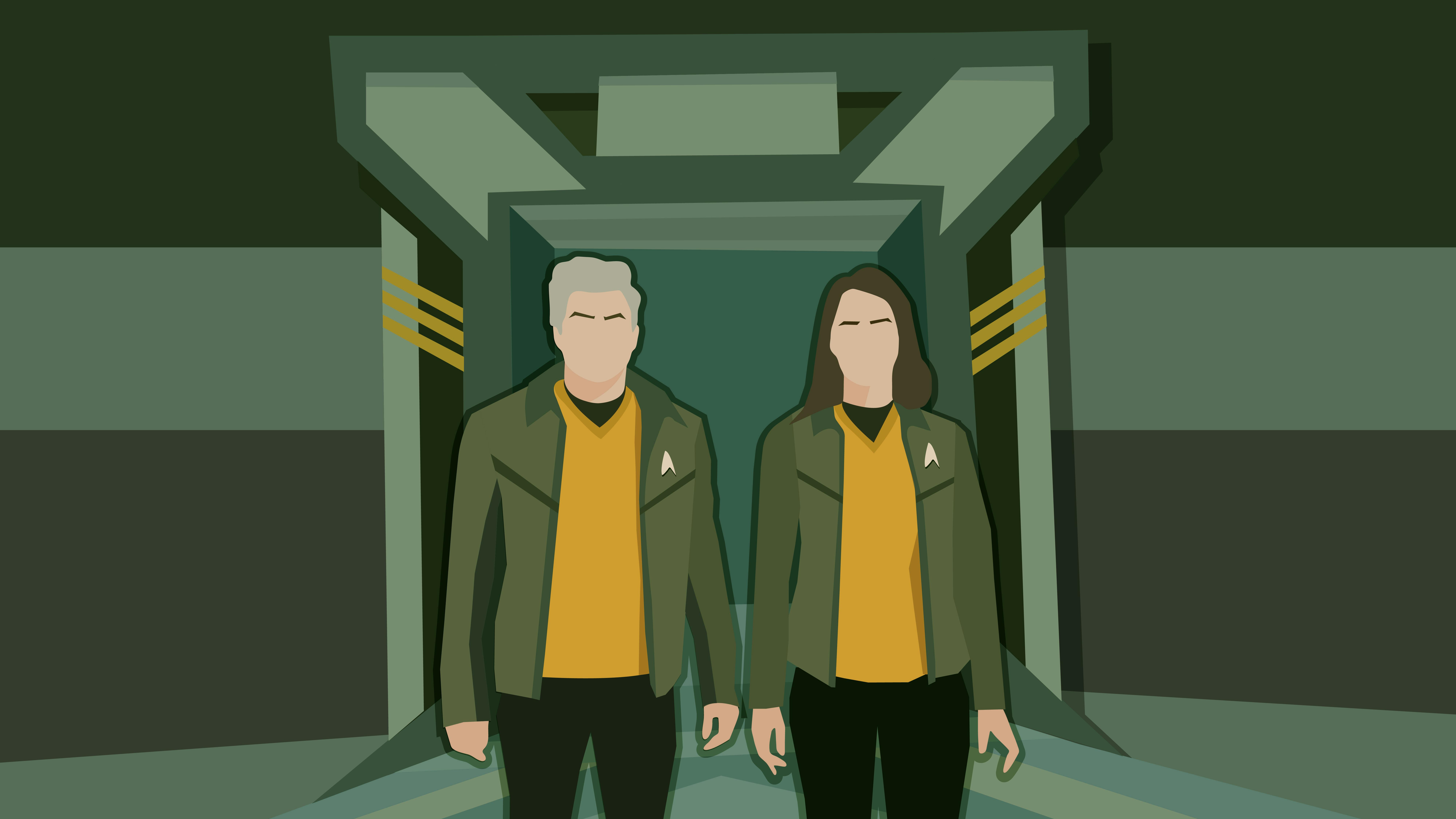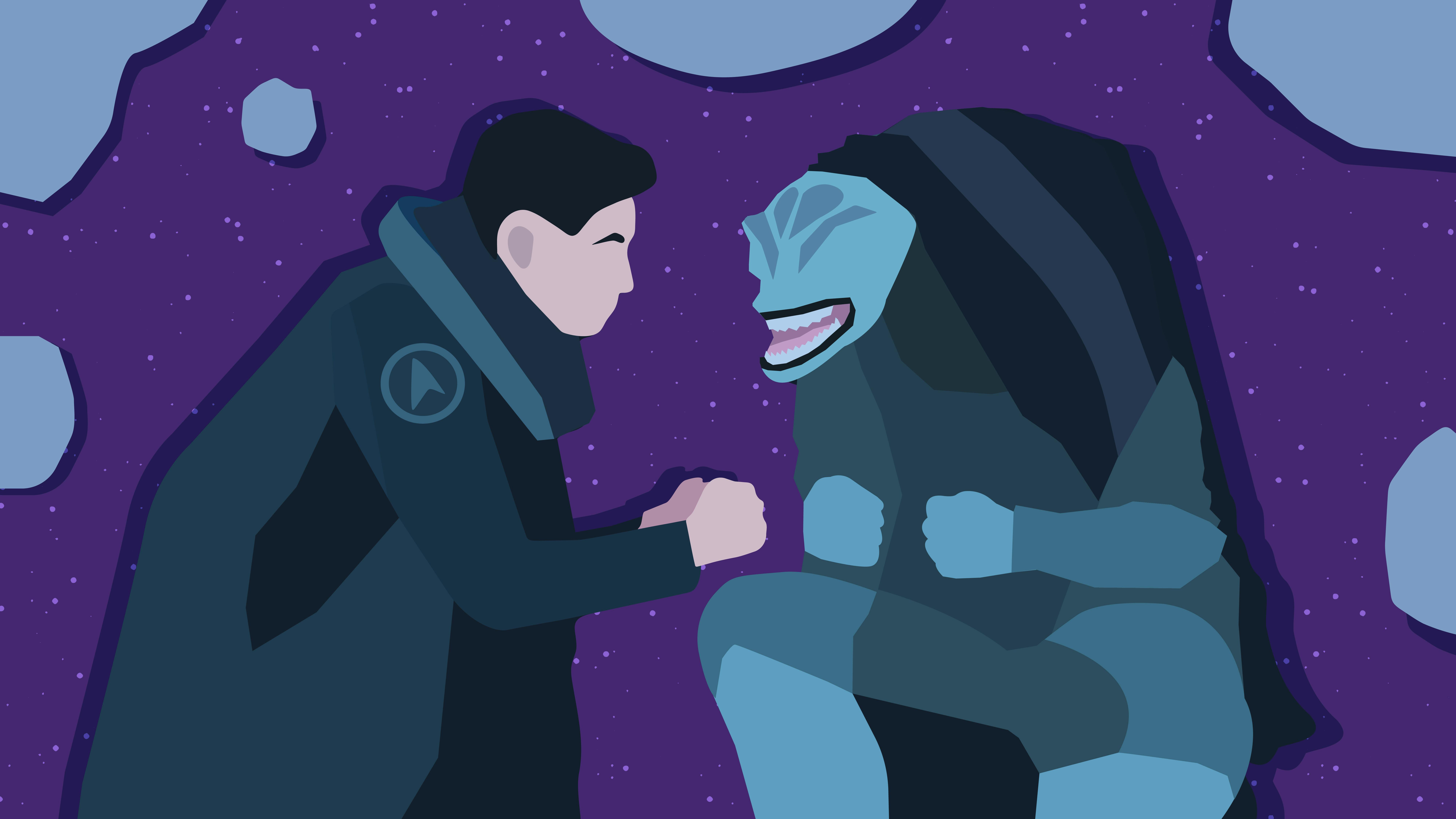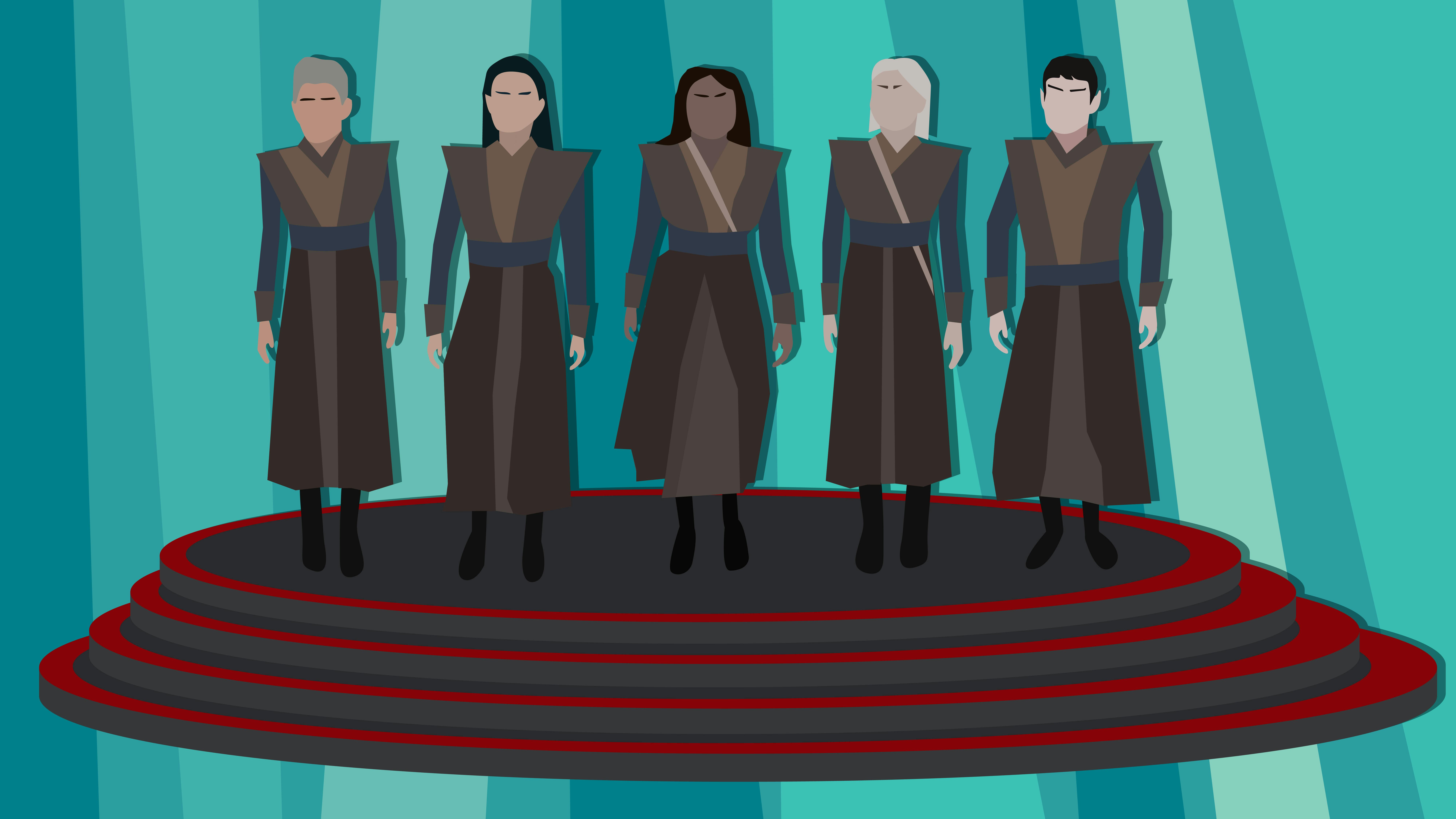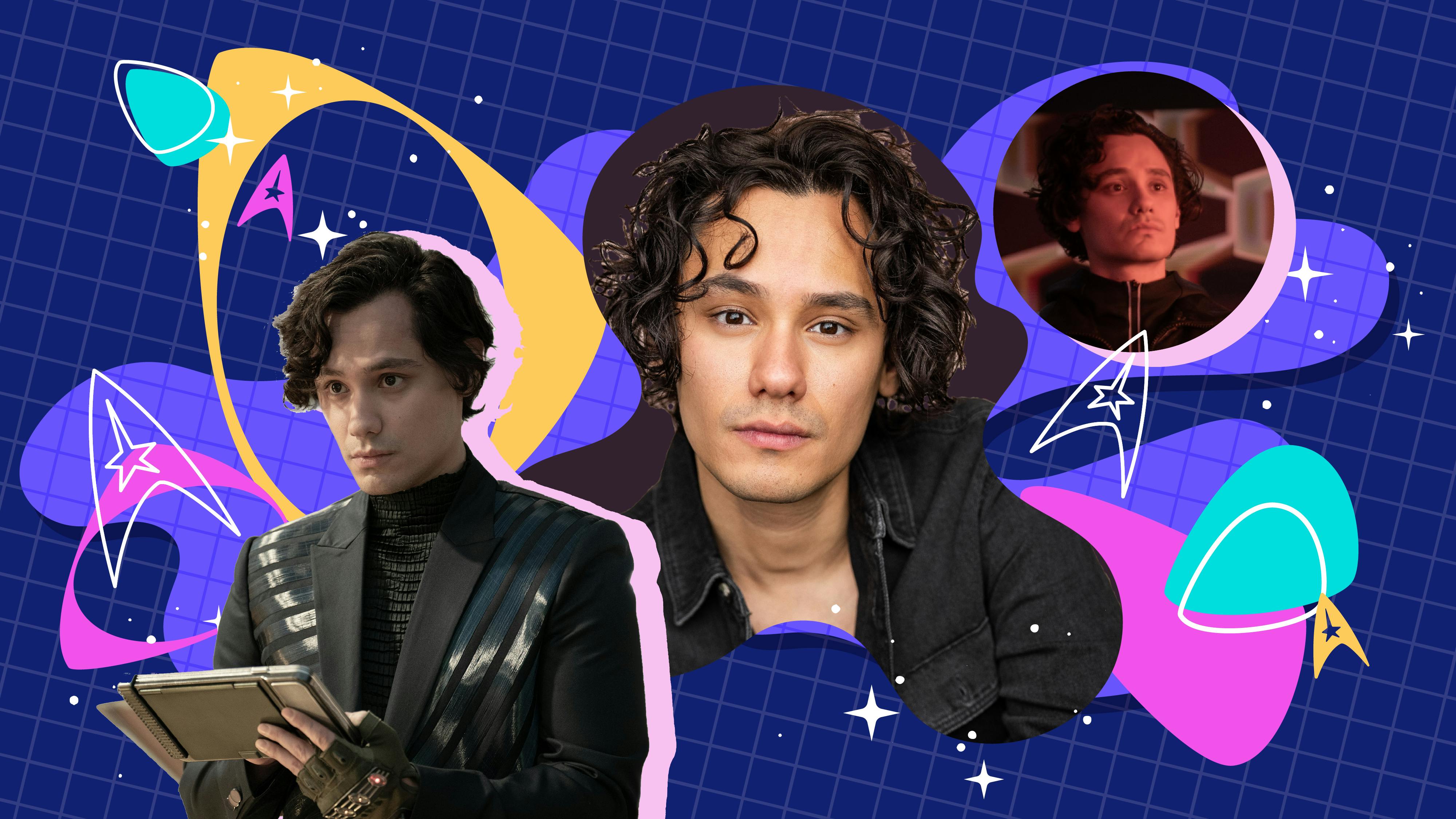Published Oct 29, 2024
Star Trek: Deep Space Nine Shows Us That Baseball is a Game Worth Playing
Like Captain Sisko, baseball helped one fan through one of the darkest periods of their life and reminded them of the values both Trek and they hold dear.
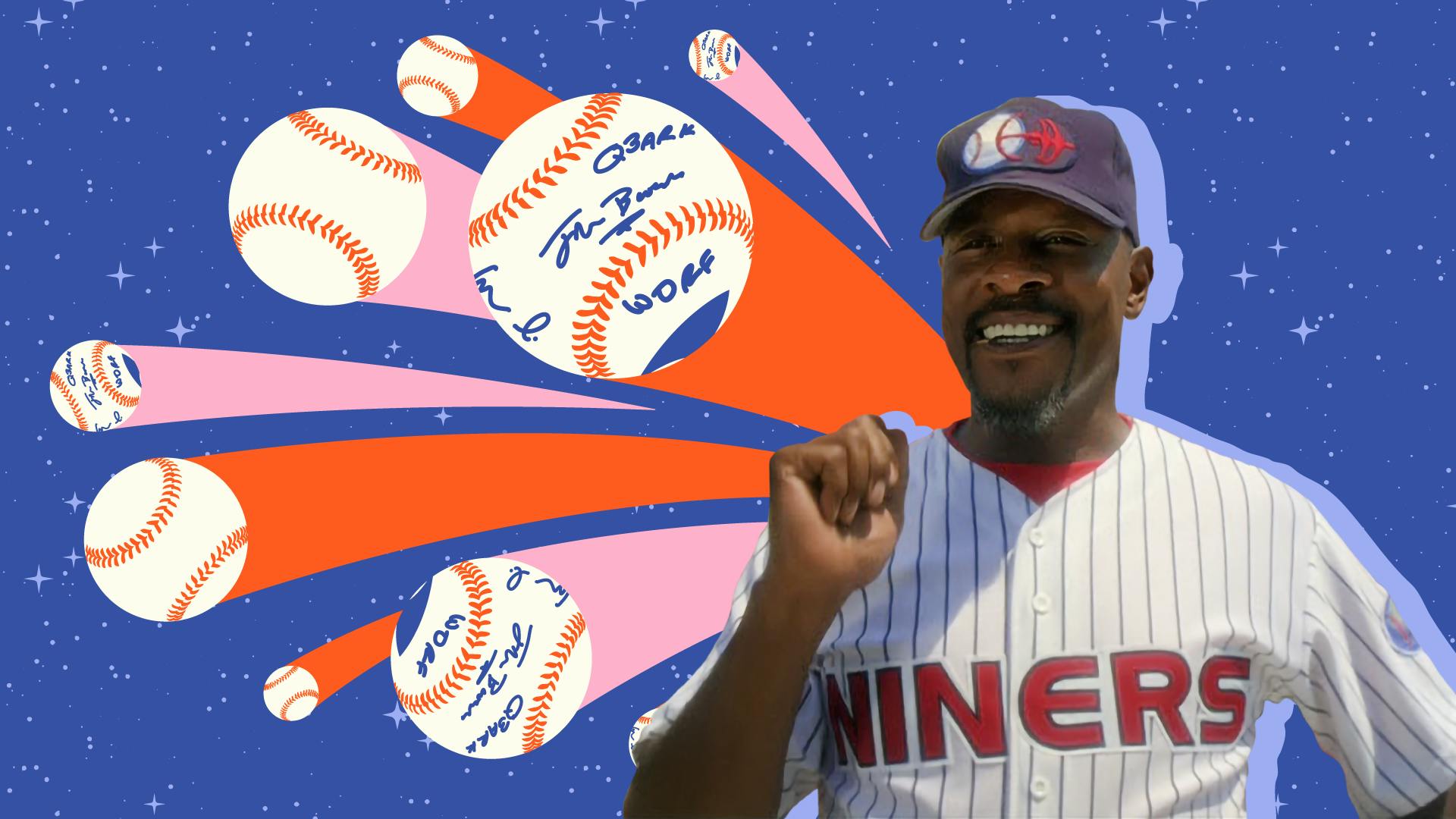
StarTrek.com
On November 2, 2016, I settled into a dingy, hole-in-the-wall bar half a mile south of Wrigley Field to watch my beloved Chicago Cubs play Game Seven of the World Series. What followed were the most intense, exhilarating 4 hours and 28 minutes of my life — they took the lead, lost the lead, screwed up in so many ways, and pulled through where it counted. When the Cubs finally won, I nearly gave myself a concussion from jumping back and smacking my head against the wall.
At the same time, somewhere in the back of my mind, I thought, "I wonder what Benjamin Sisko would think of this game."
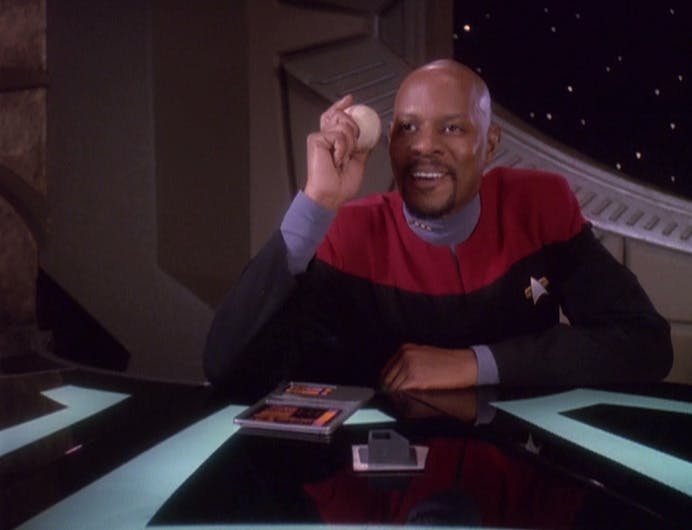
Captain Benjamin Sisko with his beloved baseball in 'Starship Down'
The Cubs' victory came on the heels of a strange, surreal month, one that was a blur of baseball and . I was running off near-constant exhilaration from watching playoff games, and on off nights, I rewatched early seasons of DS9 in preparation for Halloween. I'd missed the final two outs of the National League Championship Series because I was called on stage for a costume contest dressed as Mirrorverse Kira (I won).
But there was also a palpable fear that hung over the month, a sense that these were my last weeks of relative normalcy before a hammer would fall and crush everything I held dear. I threw myself into following the Cubs both because my favorite team had finally accomplished what it hadn't in 108 years, and because in celebrating their success I could bury thoughts of the potential, horrifying consequences of Election Day. When we won, for a few incredible days, all was right with the world.
Six days later, Donald Trump won the presidential election, and everything came crashing down around me.

"Take Me Out to the Holosuite"
StarTrek.com
Before I loved Star Trek, before I loved Star Wars, before I even knew what science-fiction was, I loved baseball. My father took me to my first game at Wrigley Field when I was 18 months old; I often joke that I learned about failure from being a Cubs fan. I grew up in the heyday of Ryne Sandberg, Mark Grace, and Sammy Sosa, and some of my earliest memories are of playing three-person baseball in the backyard with my dad and sister. I had a growing collection of bats and child-size catcher's mitts, and I learned to ride the El train by taking trips down to baseball games in the summer.
As I grew older, I became a certifiable nerd, and baseball was a strange outlier among my interests. I was more well known for my love of Star Wars and Lord of the Rings, and guys in my high school approached me with utter shock when they saw my name printed in a letter to the editor in Sports Illustrated. But I took time away from baseball when I left for college; distance from home and a particularly brutal slump of the Cubs combined such that my investment for a few years was purely nominal. It wasn't until I began to watch Deep Space Nine that my interest truly rekindled.
I came to Star Trek relatively late in life — was my first exposure to the franchise, and though I always meant to sit down and watch , I never managed to make the time. A friend suggested Deep Space Nine might be my best entry point into Star Trek, but it wasn't until 2014, after I'd moved back to Chicago on medical leave, that I finally sat down and watched the show. I was lonely, depressed, and at a loss for what to do with myself, which in some ways was the perfect cocktail of emotions for watching the DS9 pilot. I over-identified with Kira Nerys, developed a very strong crush on Jadzia Dax, and adored Benjamin Sisko's relationship with his son, Jake.
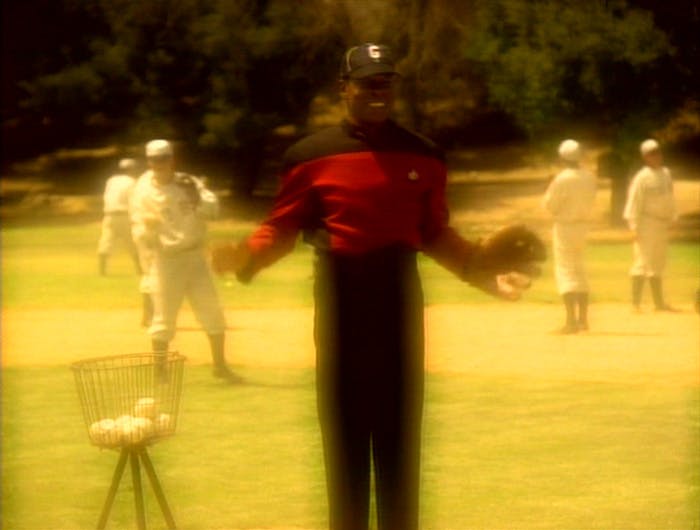
"Emissary"
StarTrek.com
We see hints of the Siskos' love of baseball in Part I of the first episode of the show, "," where Jake is seen holding a baseball glove. In Part II, Sisko realizes that baseball is the perfect metaphor to use to explain humans and the concept of linear time to the wormhole-dwelling aliens known as the Prophets. A series of visions brings him to a holosuite baseball game (I suspect early 20th Century, given the players' outfits and the Cubs team bus in the background), where Sisko states,
The rules aren't important. What's important is, it's linear. Every time I throw this ball, a hundred different things can happen in a game. He might swing and miss, he might hit it. The point is, you never know. You try to anticipate, set a strategy for all the possibilities as best you can, but in the end, it comes down to throwing one pitch after another and seeing what happens. With each new consequence, the game begins to take shape....
In fact, the game wouldn't be worth playing if we knew what was going to happen.
Benjamin Sisko, "Emissary"
Suddenly, my weird, outlying sports interest was front and center in the science fiction show I'd heard talked-up for years, and it meant everything to me. Sisko's clear love of the game and articulation of why mirrored my own feelings for baseball, and fed a love and renewed interest in the sport. At a time when my personal life felt wildly unpredictable, it was comforting to hear Sisko's words and see his baseball sitting on its stand in his office.
Sisko uses baseball as a way to connect with those closest to him on the show. This is most often seen with Jake and his frequent references to their time spent playing together in the holosuite. Baseball brings them closer together as father and son, just as baseball has long been a way for me to connect with my own father. When Benjamin goes on his first date with his eventual wife, Kasidy Yates, they instantly bond once he realizes that she also loves his obscure, antiquated hobby, and that her brother even plays in a league on Cestus III.
In one of my favorite episodes, "," Sisko is gravely injured on the Defiant and Kira talks to him to keep him awake. Kira discusses their limited relationship outside of work constraints and how, unlike with other crew members, they keep each other at a distance because of Sisko's status as Emissary among the Bajorans. At the conclusion of the episode, when Sisko debriefs Kira, he asks her if she'd like to go with him to a baseball game. Her smile in response tells us all we need to know — that this is a genuine gesture of connection on Benjamin's part, and the start of further closeness between the Captain and his First Officer.
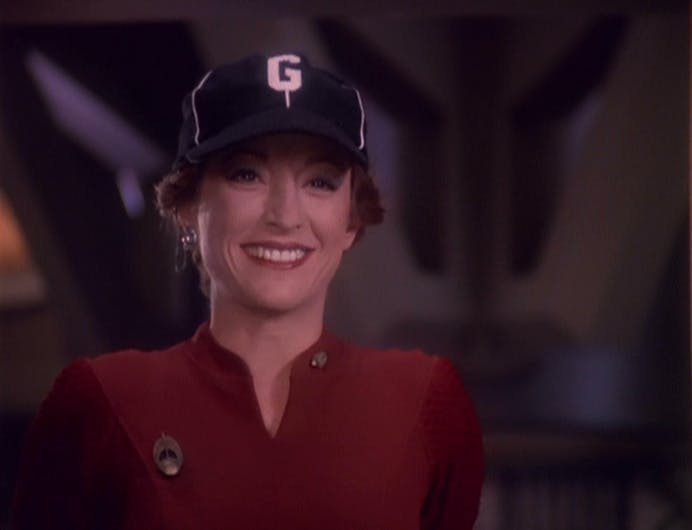
Kira Nerys about to attend a baseball game with Captain Sisko in 'Starship Down'
StarTrek.com
Of course, Deep Space Nine is about far more than baseball, and the sport has a relatively small place on the show overall. It's brought up far less by Sisko and others on later seasons, which become increasingly dark as the Dominion War dominates the main story arcs. Weekly casualty lists and military defeats set the tone on the station, and the crew weathers the deaths of both recurring and main characters, from Michael Eddington to Tora Ziyal to Jadzia Dax. The conclusion of Season 6 is undeniably bleak, with Sisko taking an extended leave of absence following Jadzia's death (he brings his baseball with him, signaling to Kira that he may not return). The early events of Season 7 take him back to DS9, but the episodes continue in the same grim vein befitting the context of the Dominion War.
Until we come to what's arguably the most absurd, tonally jarring, and delightful episode of the entire series — "." The crew is granted a breather with the arrival of Sisko's old rival, Solok, and a challenge to "a contest of courage, teamwork, and sacrifice" — baseball. What follows is a deeply humorous and heartfelt look at the main characters' attempts to understand and play the game. Bashir and O'Brien learn the definition of a bunt, while Kira discovers the complexities of the in-field fly rule (which, to be fair, even I didn't know about until watching this episode). Rom wants to play on the team to be closer to his son, Nog, just as Benjamin and Jake Sisko have done for years. Jake is in his element as "The Slider," and Odo clearly has way too much fun being umpire.

"Youuuuuu're GONE!," shouts Odo in "Take Me Out to the Holosuite"
StarTrek.com
The game turns out miserably for the Niners (which is to be expected, playing against an all-Vulcan team), but as any longtime Cubs fan knows, there is plenty of joy to be had in the game even when you’re coming in dead last. After celebrating a particularly ridiculous play by Nog and Jake, Sisko finally allows himself to put aside his rivalry with Solok and fully enjoy the game, no matter the outcome. It didn't matter that they’d lost; one run was all they needed. The team’s celebration in Quark’s afterward is the first time in ages we see so much laughter on the show; it is also clearly a love letter to Sisko, as they hand him a new baseball signed by every member of the team.
The episode is a one-off in both plot and tone; the crew returns to fighting the Dominion War through the end of the season and show. But it's a clearly needed respite, and allows our heroes to blow off steam and express joy in a concrete way.
Its placement draws uncanny parallels to my real-life celebration of the Cubs' 2016 World Series victory, which in so many ways was a lifeline for me following the election. After running on a platform fueled by rampant bigotry, Trump's victory signaled the legitimization of America's preexisting racism, sexism, homophobia, and ableism. The spike of hate crimes in the days after his election was proof to me that as a queer, disabled, half-Arab woman, my fear for myself and my loved ones was not an overreaction. At a time when I and everyone I knew was overwhelmed with despair and hopelessness about the future, walking past Wrigley Field reminded me of how happy I'd been just weeks before, and that that happiness was still something I could tap into as a reminder that not everything in the world was indescribably bleak. I went to more Cubs games in 2017 than any other season because it was a place where I could scream and cheer at the top of my lungs, with minimal worry about what was going on outside Wrigley's brick walls.
I say minimal because unlike Sisko, I can't separate baseball from politics in this day and age. Between the team's White House visit, the political alignments of the owners, and team members' suspensions for domestic violence (although this is a problem throughout major league sports), it is increasingly hard for me to be a Cubs fan. My love of the team goes far beyond whoever is in charge of them now, but it's hard to justify that sometimes.
Star Trek: Deep Space Nine - Captain Sisko Holds Baseball Team Tryouts
At the end of the day, I love baseball for many of the same reasons I love Star Trek — because at its core, it is about a team, a family, that works together through whatever ridiculous obstacles are put in its way. As Sisko so eloquently puts it, "It's about courage. And it's also about faith, and it's also about heart."
It is also, to me, about optimism. For nearly my entire life, "just wait 'til next year" was the mantra of the Chicago Cubs, an enduring hope that one day we would go all the way, despite over a century of defeat. Optimism is a core tenet of Star Trek, a belief in the enduring goodness of humanity despite its many conflicts and trials. The only thing more optimistic than such belief is a faith in the unknown, and the hope that with it comes something better — something spectacular, like a 20-minute rain delay or Rom's accidental bunt. It's hard for me to hold on to that faith these days, but I hold those moments in my mind and keep them close.
After all, the game wouldn't be worth playing if we knew what was going to happen.

